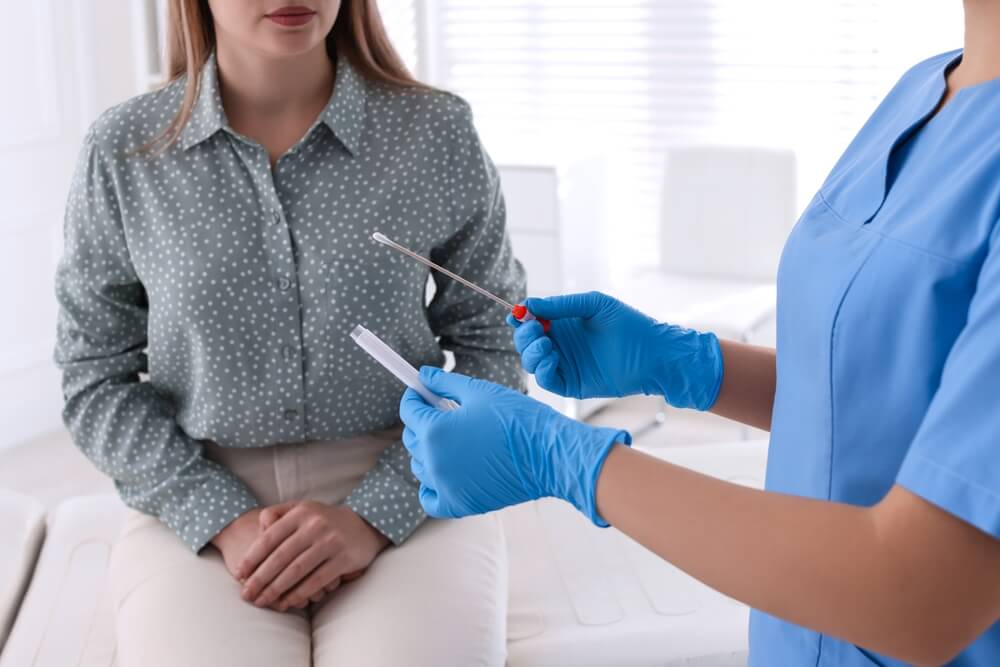If you are having unprotected sex and dealing with painful urination, unusual vaginal discharge, and pelvic or abdominal pain, you may have gonorrhea. Since this sexually transmitted disease does not always cause symptoms, it can easily go undetected and even put your life at risk. That is why educating yourself on the gonorrhea symptoms and the long-term effects of this disease are crucial.
In this comprehensive article, you’ll learn everything you need to know about this common STD, including the gonorrhea symptoms, whether it can cause infertility and potential treatment methods.
That said, the best way to treat gonorrhea is to prevent it from happening in the first place. We recommend consulting highly-trained professionals at reputable clinics such as STD Testing in South Miami. It also goes without saying that sexual intercourse with the use of a condom is necessary.
With that out of the way, let’s find out the must-know facts about gonorrhea.
What is Gonorrhea?
Gonorrhea is a common and very serious sexually transmitted disease that can infect men and women. Usually, gonorrhea affects the throat, rectum, or the urethra, while in women, it can also affect the cervix.
Since it is a sexually transmitted disease, gonorrhea is spread during anal, oral, or vaginal sexual intercourse. However, infected mothers can pass on the infection to their babies during vaginal childbirth.
In this scenario, the baby’s eyes are typically infected. If you are pregnant and you suspect you may have gonorrhea, it is vital to get tested and treated on time before giving birth. If you do not treat this disease and have your baby, gonorrhea can lead to permanent blindness.
Another way to spread the disease is by sharing unwashed sex toys such as vibrators.
Besides using a high-quality condom, the best way to prevent gonorrhea is to abstain from sexual intercourse or be in a mutually monogamous relationship.
Interestingly, gonorrhea used to be called “the clap,” but this colloquial term is rarely used nowadays. It is also interesting to note that this disease is not spread by sharing baths, cups, cutlery, towels, kissing, swimming pool use, or hugging. Namely, the bacteria are unable to survive outside of the human body.

What are the Gonorrhea Symptoms?
Often, you can have this disease without the typical gonorrhea symptoms. That is why we always recommend visiting your healthcare provider regularly. If you are looking for the best professionals in the industry and you are in the area, we highly suggest obstetrics and gynecology in Miami.
All things considered, here are the typical gonorrhea symptoms and signs to look out for. In women, these include:
- Painful urination
- Increased vaginal discharge
- Pelvic or abdominal pain
- Unusual vaginal bleeding between menstrual cycles (for instance, after vaginal sex)
Whereas in men, the gonorrhea symptoms include:
- Painful urination
- Swelling or pain in one testicle
- Unusual discharge from the tip of the penis
On top of that, you can experience gonorrhea symptoms in other parts of your body. For instance, these may include the following:
- Throat: You may have swollen lymph nodes in your neck or a sore throat.
- Joints: You may have septic arthritis, or your affected joints might be extremely painful and red.
- Eyes: You can experience light sensitivity, pain, and unusual discharge from one or both eyes.
- Rectum: You may experience anal itching, spots of bright red blood, and discharge from the rectum.
Overall, if you are experiencing thick yellow or green discharge from the penis or the vagina, persistent pain when urinating, and bleeding between your periods, you may have this sexually transmitted disease.
But remember, approximately one in ten men with gonorrhea and almost 50 percent of infected women have no symptoms.
So, can gonorrhea cause infertility? Yes, it can, and so much more! To stay safe, we recommend practicing safe sexual intercourse, being in a mutually monogamous relationship (where each partner regularly gets tested), or abstaining from sex.
Gonorrhea and the Complications
If left undiagnosed and untreated, the long-term effects of gonorrhea can be life-threatening. Can gonorrhea cause infertility? Here are some major complications associated with this disease:
- Increased risk of HIV/AIDS: One of the most severe long-term effects of gonorrhea is being more susceptible to life-threatening infections such as the human immunodeficiency virus or HIV. Individuals with both HIV and gonorrhea can pass on both illnesses to their partners.
- Complications in newborns: As mentioned, when mothers with gonorrhea give birth to babies, they may risk passing on the disease to the newborns. Sometimes, gonorrhea in babies may result in permanent vision loss.
- Infertility in men: Men with gonorrhea can have inflamed epididymitis (sperm ducts). When left untreated, epididymitis can cause infertility.
- Infertility in women: Can gonorrhea cause infertility? Yes, it can, especially when the disease spreads into the fallopian tubes and the uterus. This sexually transmitted illness can cause pelvic inflammatory disease, a condition that can scar the tubes. If you suffer from pelvic inflammatory disease, you may require immediate medical treatment.
- Infections may spread to other body parts: The gonorrhea-causing bacterium can quickly spread through the patient’s bloodstream, infecting other body parts such as the joints. Some of the expected results include skin sores, stiffness, swelling, and fever.
What Causes Gonorrhea and What are the Risk Factors?
The Neisseria gonorrhoeae bacterium is responsible for this sexually transmitted disease. As mentioned, this illness is passed on from one individual to the next during sexual intercourse, including vaginal, anal, or oral sex.
Usually, women younger than 25 who practice unprotected sex are at the highest risk of this illness. Moreover, men in homosexual relationships who do not use condoms are more likely to get gonorrhea.
Here are some other factors that may put you at risk of this illness:
- Having sexual intercourse with someone who has multiple partners
- Having multiple sexual partners
- Changing sexual partners
- Having had the disease or other STDs in the past
Getting tested is crucial to preventing gonorrhea and passing it along to a partner. If you notice any symptoms of this illness or you are worried that you may have a sexually transmitted disease, reach out to a reliable clinic for a health test.
Fortunately, doctors can diagnose this disease by testing a discharge sample.
Treatment is very straightforward. Usually, this STD is treated with an antibiotic injection, typically in the thigh or the buttocks. With proper treatment, you can expect most of the STD symptoms to go away within a couple of days.
However, staying on track with future appointments is important. You will want to stay in touch with your healthcare provider if any follow-up appointments are necessary.
While healing, you should avoid any form of sexual intercourse.
How Can I Prevent a Sexually Transmitted Disease?
Here are the best ways to avoid any STD:
- Use a condom any time you have sex, or abstain from sexual intercourse
- Make sure you and your partner get tested regularly
- Avoid sexual intercourse with an untested individual
- Limit your number of sexual partners
- Consider annual STD screening
Remember, previous successful STD treatment does not mean that you are immune to any future diseases.

Book a Schedule Today
Are you ready to take better care of your health? If you or a loved one are struggling with STD symptoms, give us a call. Our team of professionals will help you with any dilemma or concern you may have. Successful treatment is guaranteed.


